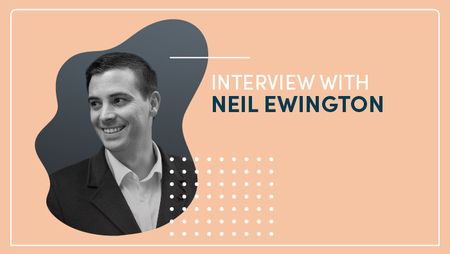Taking your first steps into the world of work as a recent graduate, whether it’s an entry-level job or a graduate scheme, can be daunting and stressful – especially when you’re competing with a large pool of equally qualified and ambitious candidates.
But with a little planning and research, and the right mindset, you’ll be able to secure a job in next to no time.
We caught up with Neil Ewington, a career coach and the founder of the Early Career Academy, to get his expert insights and recommendations for job search success – and help you start your career on the right track!
The first thing you should do, suggests Ewington, is create a list of the 20 employers you want to work for, ranging from big to mid-sized companies that match your ideals, interests and qualifications. That said, it’s also a good idea include a few wildcards in your list – essentially, companies that you may not be as familiar with but that could potentially be right for you.
Once your list is ready, the next step is to identify the relevant skills and qualities required for job application success. Ewington recommends reaching out to people who have already completed the same journey you’re embarking on. If you know someone who completed the particular grad programme that you’re interested in, for example, get in touch with them and ask them for their advice and insights, particularly regarding the application and interview process so you can refine your own approach. LinkedIn can also be a great place to connect with likeminded people.
You can also use LinkedIn to follow up with company representatives after a career fair. Solidifying these connections will help you stand out as well as provide you with the opportunity to extend your communication with these recruiters and ask further questions that will aid your job search.
Meanwhile, Ewington suggests that graduates who want to work in more creative sectors to make good use of social media platforms like Instagram and Twitter, where companies they may be interested in could be more active on.
However, Ewington cautions graduates not to use these networking strategies to ask for a job directly. Instead, use your professional connections to gather insights and information that will help you stand out during an interview process. Asking industry veterans for advice and tips will give you a competitive edge over other candidates.
During your interview, it’s vital to demonstrate that you have a solid understanding of the role.
From the beginning of the interview, ask the recruiters who, to them, would qualify as an outstanding hire. From there on, use this information to tailor your answers and effectively market yourself.
At the end of the interview, meanwhile, Ewington advises to ask interviewers if they have any reservations about them or their application. This will allow you to elaborate further on points that may not have been touched on during the interview and clarify key concerns that could hold the company back from making you an offer.
Finally, one of the best proactive measures to take following an interview is to express your gratitude for the opportunity and follow up with your interviewers.
By implementing these tips, we can confidently say that you’ll boost your chances for job search success as a graduate!
Make sure to watch the full video on our YouTube channel for more tips and insights. And if you need further help, then you can jump on a free 15-minute coaching session with Early Career Academy, to help you navigate the process.
Got any tips of your own you’d like to share? Let us know in the comments section below!


